Kamala Devi Harris’s journey to becoming the Vice President of the United States is a story of determination, resilience, and breaking barriers. As the first woman, the first Black woman, and the first person of South Asian descent to hold the office, Harris’s rise has been nothing short of historic. Her career trajectory, marked by numerous “firsts,” reflects a lifetime dedicated to public service and the pursuit of justice. From her early years in California to her groundbreaking role as Vice President, Harris’s story has reshaped the political landscape in America.
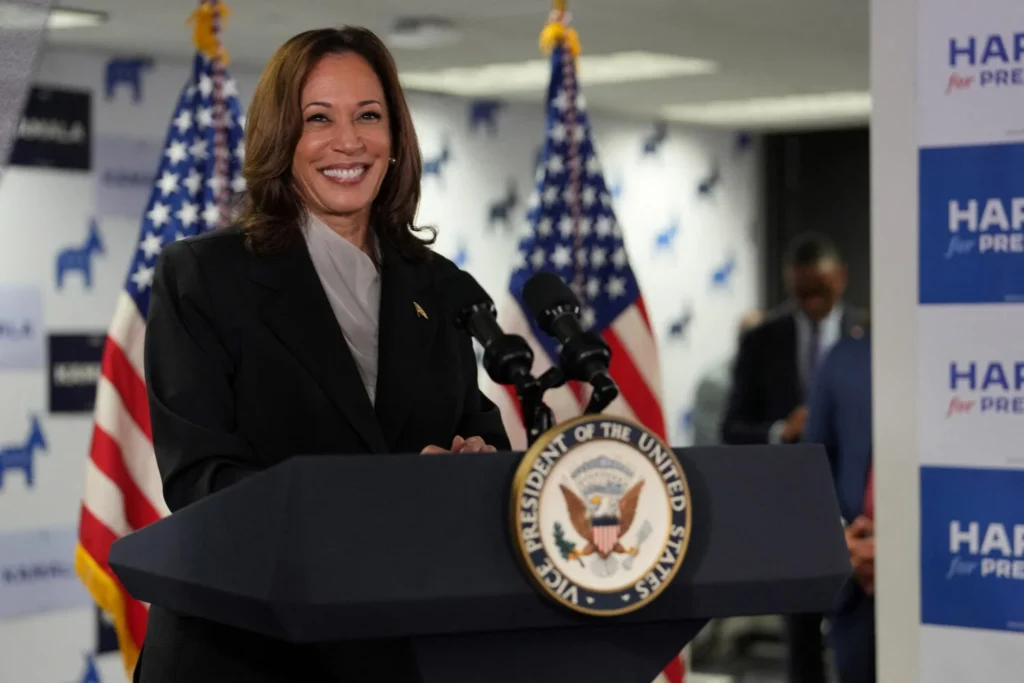
Early Life and Education
Born on October 20, 1964, in Oakland, California, Kamala Devi Harris was raised in a diverse and intellectually stimulating environment. Her mother, Shyamala Gopalan, was a breast cancer researcher from India, and her father, Donald Harris, was a Black economist from Jamaica. Both instilled in Kamala and her sister, Maya, the importance of education, civic duty, and social justice.
Growing up in a household deeply influenced by the civil rights movement, Harris was exposed early on to racial and social inequality. This environment fueled her passion for justice and equality, setting the stage for her future career in law and politics. Harris attended Howard University, a historically Black university in Washington, D.C., where she majored in political science and economics. Her time at Howard was formative, arming her with a strong sense of identity and a commitment to public service.
After graduating from Howard, Harris pursued a law degree at the University of California, Hastings College of the Law. Her legal education equipped her with the tools to fight for justice, and she began her career as a deputy district attorney in Alameda County, California, where she focused on prosecuting cases of gang violence, drug trafficking, and sexual assault.
The Path to Attorney General
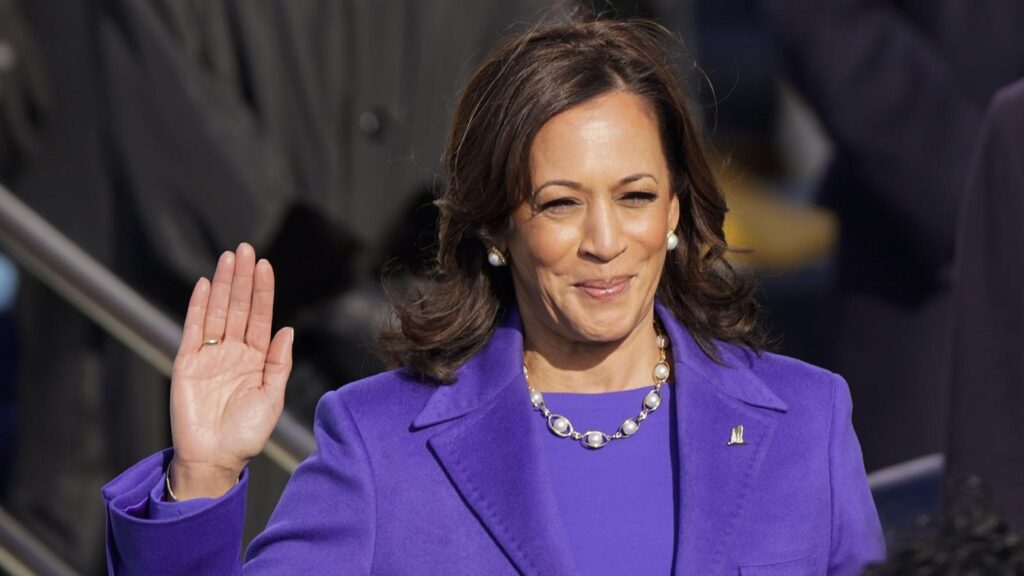
Harris’s early career as a prosecutor quickly garnered attention. Her tough-on-crime stance, particularly in violent crime cases, made her a rising star in California’s legal community. In 2003, she made history by becoming the first Black woman elected as the San Francisco District Attorney. In this role, she implemented several progressive reforms, including initiatives to reduce recidivism and address the root causes of crime. Harris’s tenure as District Attorney was marked by a balance between enforcing the law and advocating for reform, a balance that would characterize her career in public service.
Her success in San Francisco paved the way for her election as California’s Attorney General in 2010, making her the first woman, the first Black person, and the first South Asian person to hold the position. As Attorney General, Harris continued to build her reputation as a reformer and a fierce advocate for justice. She took on major cases involving predatory lending, environmental protection, and civil rights, often going head-to-head with powerful interests. One of her most notable achievements was securing a $20 billion settlement for California homeowners affected by the foreclosure crisis, a testament to her commitment to protecting vulnerable communities.
A Historic Senate Career
In 2016, Kamala Harris’s political star continued to rise when she was elected as the United States Senator from California, becoming only the second Black woman and the first South Asian American to serve in the Senate. Her time in the Senate was marked by her role on the Judiciary Committee, where she earned a reputation for her sharp questioning and unwavering commitment to holding those in power accountable. Harris was particularly vocal during the confirmation hearings of Supreme Court Justices, where her incisive questioning of nominees like Brett Kavanaugh brought her national recognition.
As a Senator, Harris was a champion for issues such as criminal justice reform, healthcare, and immigration. She introduced legislation to address systemic racism in policing and the criminal justice system, reflecting her long-standing commitment to reform. Harris also played a key role in advocating for the Deferred Action for Childhood Arrivals (DACA) program, defending immigrants’ rights and pushing for comprehensive immigration reform.
The 2020 Presidential Run and the Vice Presidency
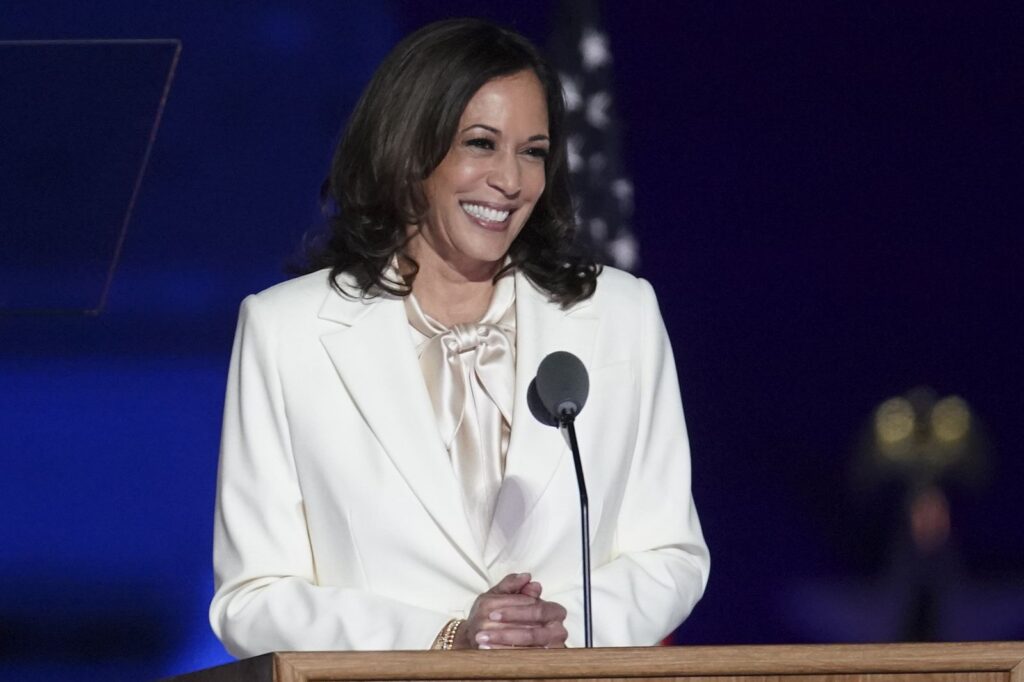
In January 2019, Kamala Harris announced her candidacy for the 2020 Democratic presidential nomination. Her campaign highlighted her career as a prosecutor and her commitment to “truth, justice, and decency.” While she initially gained traction with her dynamic performances in debates and her strong fundraising efforts, her campaign ultimately struggled to maintain momentum in a crowded field, leading her to suspend her candidacy in December 2019.
However, Harris’s presidential run had solidified her position as a key figure in the Democratic Party, and in August 2020, Joe Biden, the Democratic nominee, selected her as his running mate. This decision was historic on multiple levels: Harris became the first Black woman, the first South Asian American, and the first graduate of a historically Black college or university to be nominated for national office by a major party. Her selection was seen as a reflection of the growing diversity within the Democratic Party and the recognition of the crucial role that women of color play in shaping the party’s future.
The Biden-Harris ticket went on to win the 2020 presidential election, defeating the incumbent, Donald Trump, in a contentious and closely watched race. On January 20, 2021, Kamala Harris was sworn in as the 49th Vice President of the United States, making history as the highest-ranking female official in U.S. history. Her inauguration was a moment of profound significance for millions of Americans, particularly women and people of color, who saw her achievement as a testament to the possibilities of progress in America.
The Road to 2024: Harris Takes the Lead
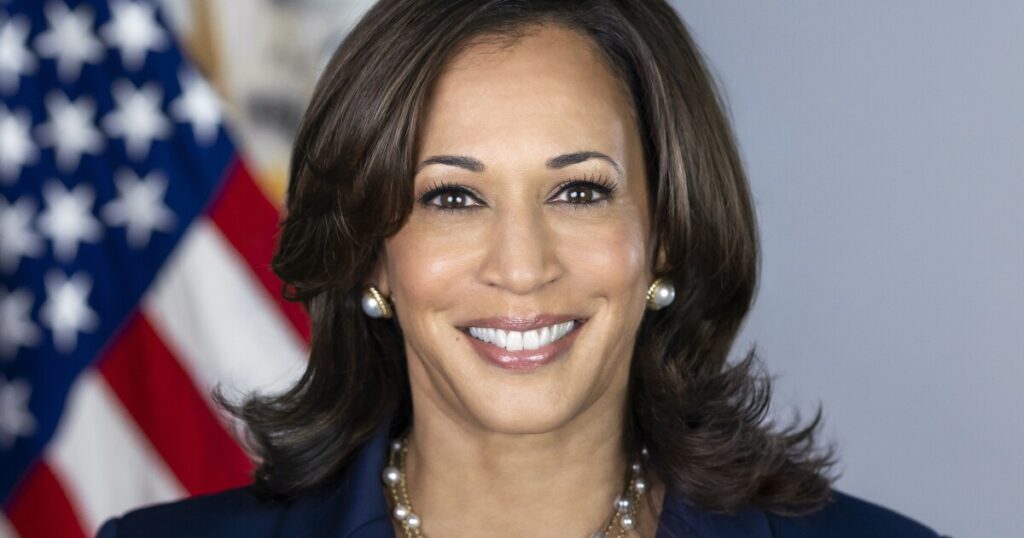
As Vice President, Kamala Harris has played a crucial role in the Biden administration, taking on significant responsibilities, including addressing the root causes of migration from Central America, strengthening ties with African nations, leading efforts on voting rights, and advocating for women’s rights and racial justice. Her performance in office further solidified her credentials as a leader capable of stepping into the highest role in the land.
In 2024, as President Joe Biden decided not to seek re-election, he passed the torch to Kamala Harris, endorsing her as the Democratic Party’s nominee for President. This decision was historic, marking the first time in U.S. history that a sitting President endorsed a female Vice President to succeed him. Biden’s decision was seen as a recognition of Harris’s capabilities and the trust he placed in her to carry forward the administration’s legacy.
The Democratic Party and its voters responded with overwhelming enthusiasm, rallying around Harris as the standard-bearer for the party. Her nomination represented a culmination of the progress that had been made in American politics, with a Black woman at the top of the ticket for the first time. The moment was celebrated not only as a victory for Harris but also as a victory for all those who had fought for gender and racial equality in the United States.
A New Chapter in American History
Kamala Harris’s journey from Oakland to the White House is a testament to the power of perseverance, dedication, and breaking barriers. Her historic rise through each phase of her political career has paved the way for future generations of women and people of color to aspire to the highest offices in the land. As the Democratic Party’s nominee for President in 2024, Harris stands poised to make history again, and the world watches with anticipation as she leads the charge toward a new chapter in American history.
On the September 10, 2024, presidential debate, Kamala Harris decisively outperformed former President Donald Trump. Harris’s strategic focus on issues like abortion rights, democracy, and the economy set her apart and with deft precision made her opponent look weak, out of touch, and unfit for the presidency.
Her story is not just one of personal achievement but one that reflects the changing face of America—a nation that, despite its challenges, continues to move forward toward greater inclusion, equality, and justice for all.
Also Check Out

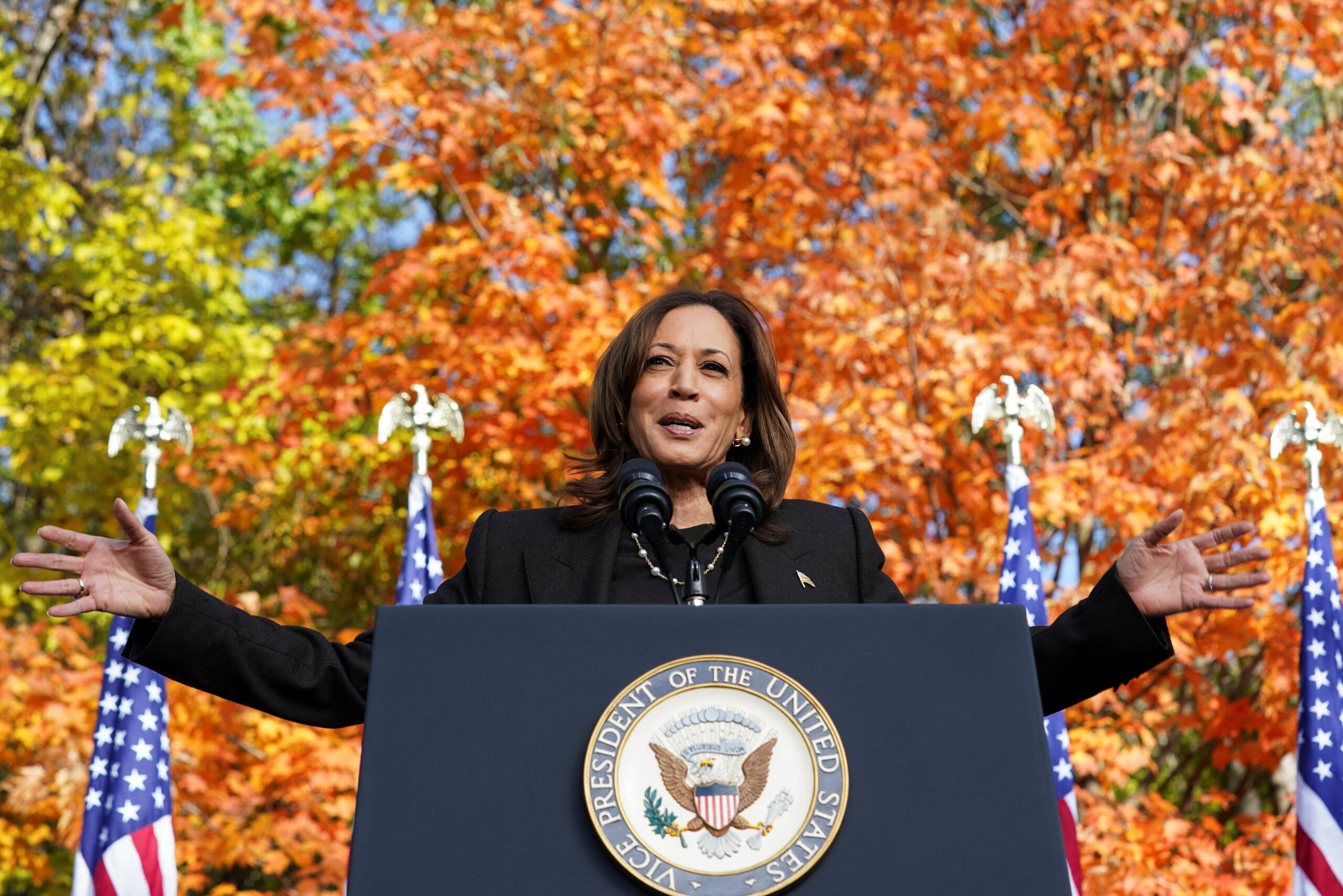
Leave a Reply